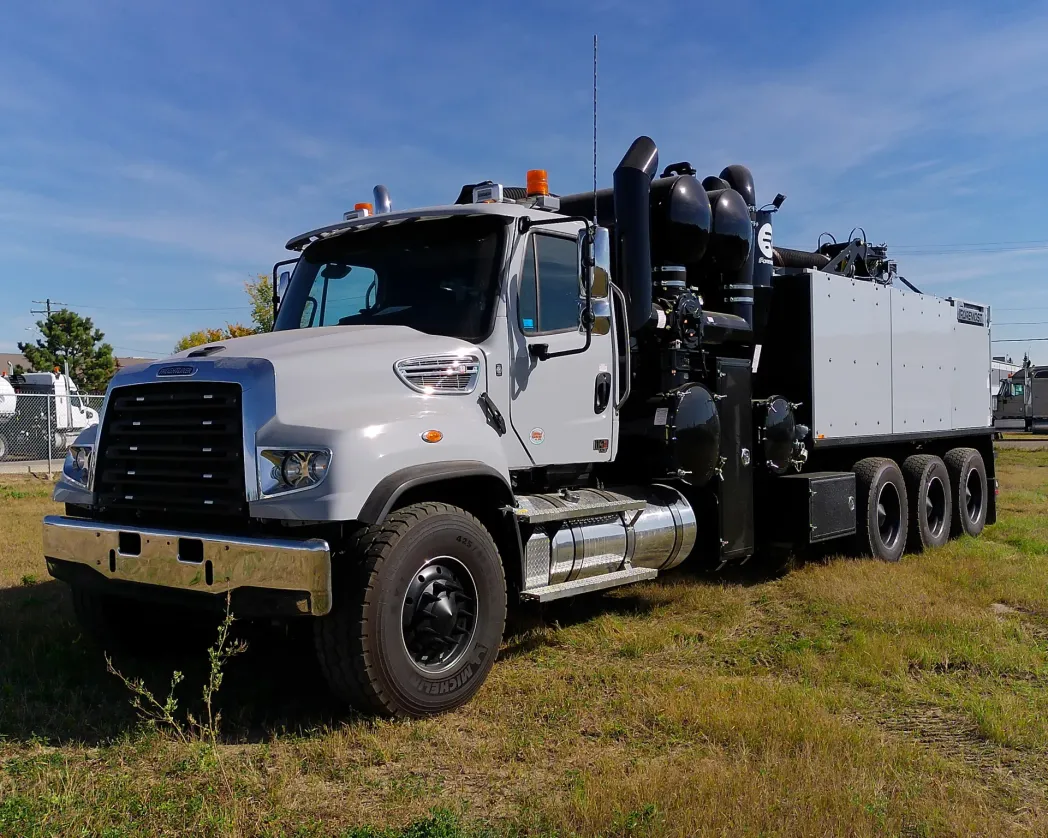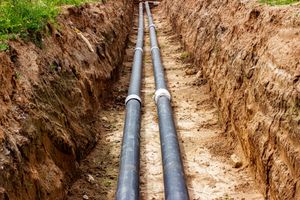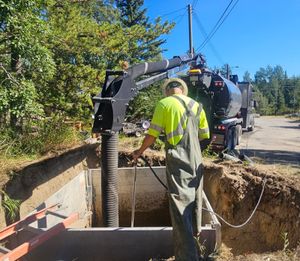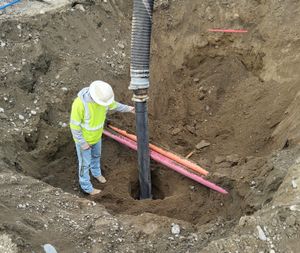5 Best Hydrovac Maintenance Practices To Extend the Life of Your Hydrovac
Published Oct 16, 2025

Your hydrovac is a beast, chewing through mud and blasting apart stubborn soil. However, every beast requires upkeep: ignore it, and it can lead to lost jobs and expensive repairs.
The good news is that you can avoid the disappointment of a faulty hydrovac with a handful of consistent, scheduled habits.
Check out our tips to keep your hydrovac in tip-top shape so it lasts longer and works harder.
1. Take care of the water system
The water system is the heart of your hydrovac, pumping pressurized power through every line. If the heart stops, so does the whole body of the truck. Consistent draining and proper winterization—like adjusting antifreeze levels and inspecting pumps—mirror the same practices used by professional hydrovac service teams.
Make it a habit to drain lines at the end of every shift to prevent freezing in winter and keep mineral buildup from turning into long-term blockages. Crews should also check fittings, tanks, and nozzles daily for leaks or pressure drops (it’s always better to be safe than sorry).
If you notice weaker flow, fluctuating pressure, or nozzles that clog more often than usual, it’s a sign that maintenance is overdue. A healthy water system keeps the job moving, reduces strain on pumps, and extends the lifespan of your hydrovac through regular maintenance.
2. Keep the debris tank clean
Every excavation leaves behind spoils, sludge, and mud that settle in the debris tank; it’s just a part of the job. If buildup is not cleared regularly, it hardens and causes major headaches.
Regular rinsing and scheduled cleanouts prevent valves from jamming, keeping your disposal process quick and smooth. In cold weather, heating jackets, insulated tanks, and heated valves prevent spoils from freezing into a solid block. It also helps to keep deflector plates, filters, and the boom hose in good shape, since they protect key components and maintain smooth airflow during disposal.
Even in warmer climates, a clean tank means less weight on your truck, less stress on hydraulics, and fewer delays when it’s time to dump.
Keeping the debris tank clear isn’t just about neatness; it’s also about performance and safety.
3. Maintain hoses, nozzles, and boilers
Hoses and nozzles work harder than almost any other part of your hydrovac. Under constant high pressure, hoses can wear thin, crack, or burst if ignored. Pay extra attention to the blower system, boom hose, and high-pressure lines—each takes constant stress and should be inspected or swapped before failure.
Ensure you inspect hoses regularly and replace them before failure, not after.
Nozzles deserve just as much attention. Dirt, debris, or even small cracks can reduce cutting power and slow down excavation, potentially prolonging jobs.
Boilers are another key player. They keep water hot enough to cut through frozen ground or packed clay. Check burners, filters, and circulation pumps to ensure the boiler remains reliable and operational. Without steady heat, a hydrovac loses much of its digging power, which is why consistent hydrovac maintenance is essential in harsh conditions.
4. Protect the engine and hydraulics
The engine and hydraulic system are the lifeline of your hydrovac. If either goes down, the truck isn’t going anywhere.
Keep your hydrovac in peak condition by sticking to routine oil changes, coolant checks, and fuel filter replacements. Hydraulics should be monitored for leaks, strange noises, or pressure changes that signal a worn seal or pump issue. Don’t forget drivetrain components and the transfer case; both keep power moving from the engine to your excavation systems and deserve the same regular attention.
Also remember, cold weather adds extra pressure. Block heaters, anti-gel fuel additives, and storing trucks in warm bays all help diesel engines start without a hitch and hydraulics flow without hesitation. If you service these systems on schedule, you’ll avoid expensive breakdowns that sideline the entire crew.
5. Prioritize inspections and safety checks
A hydrovac may look like a single powerhouse, but it’s really a collection of heavy-duty systems working together. Your tires, brakes, and suspension take a beating every day and should be inspected frequently. Many operators schedule full annual safety inspections to stay compliant and catch wear before it becomes a hazard.
Tires with low tread or poor inflation can’t safely handle the weight of a full debris tank. Brakes and suspension components wear quickly under heavy loads and must be serviced before they compromise safety.
Don’t forget the small parts in inspections.
Filters, belts, batteries, and electrical systems all deserve regular checks. Identifying a small problem in the yard is always cheaper and safer than a breakdown in the field, and it’s one of the simplest ways to extend the life of a hydrovac. And just as important, your crew’s safety depends on equipment that works the way it should.
Need an extra check?
With consistent care of the water system, regular debris tank cleanouts, attention to hoses and boilers, engine and hydraulic protection, and preventive inspections, you’ll extend the life of your truck and keep jobs running smoothly.
For full-scale service, part replacements, or a new hydrovac, our local truck specialists are ready to help keep your equipment in top shape.




















